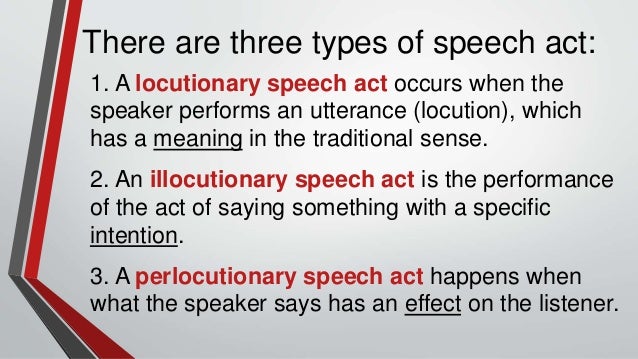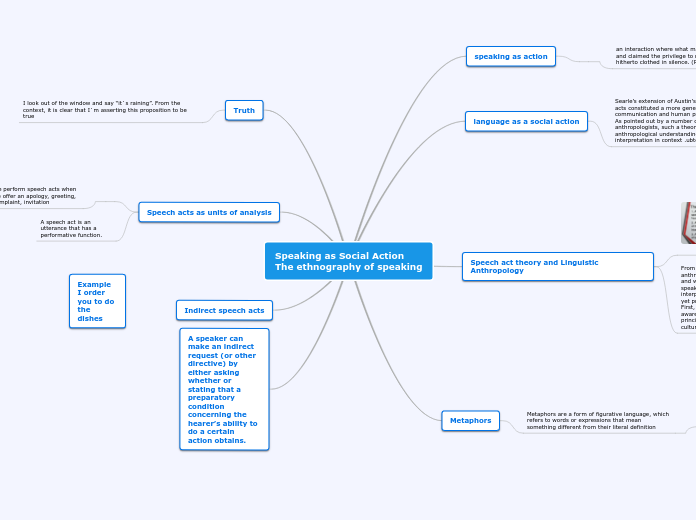Speaking as Social Action
The ethnography of speaking
speaking as action
an interaction where what mattered most was who spoke out and claimed the privilege to reveal or hide a public secret hitherto clothed in silence. (Rosaldo 1982: 214)
language as a social action
Searle’s extension of Austin’s theory to a much wider range of acts constituted a more general theory of human communication and human psychology (Searle 1969, 1983). As pointed out by a number of linguistic and cultural anthropologists, such a theory seems at odds with an anthropological understanding of human action and its interpretation in context .ubtema
Speech act theory and Linguistic Anthropology

Subtema
From the perspective of linguistic anthropology, these discussions about how and where to locate the knowledge that speakers and hearers have in producing and interpreting utterances are important and yet problematic for at least two reasons. First, they are done without apparent awareness that the phenomena and principles invoked by the analyst might be culture-specific.
Metaphors
Metaphors are a form of figurative language, which refers to words or expressions that mean something different from their literal definition
The curtain of night fell upon us
Truth
I look out of the window and say “it`s raining”. From the context, it is clear that I`m asserting this proposition to be true
Speech acts as units of analysis
We perform speech acts when we offer an apology, greeting, complaint, invitation
A speech act is an utterance that has a performative function.
